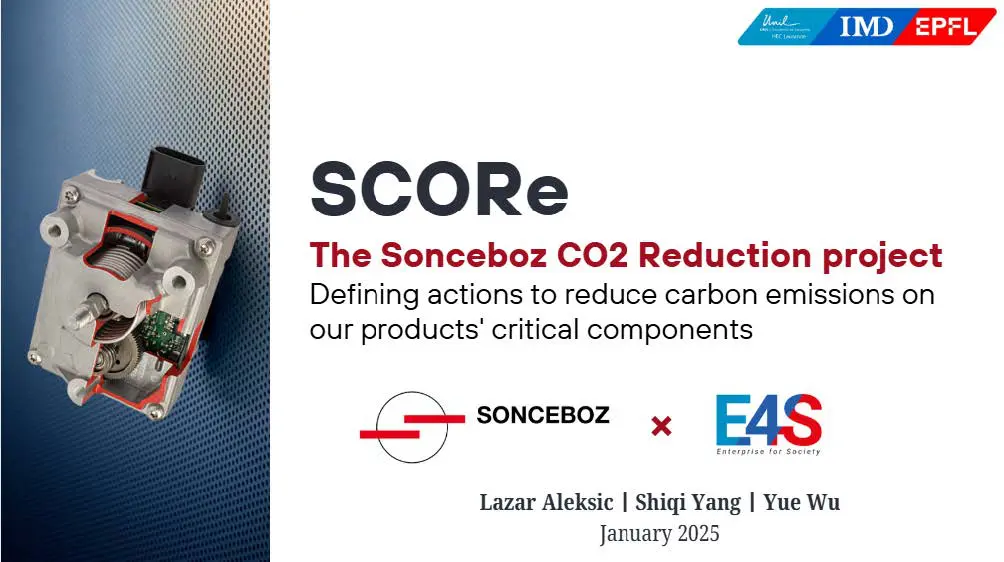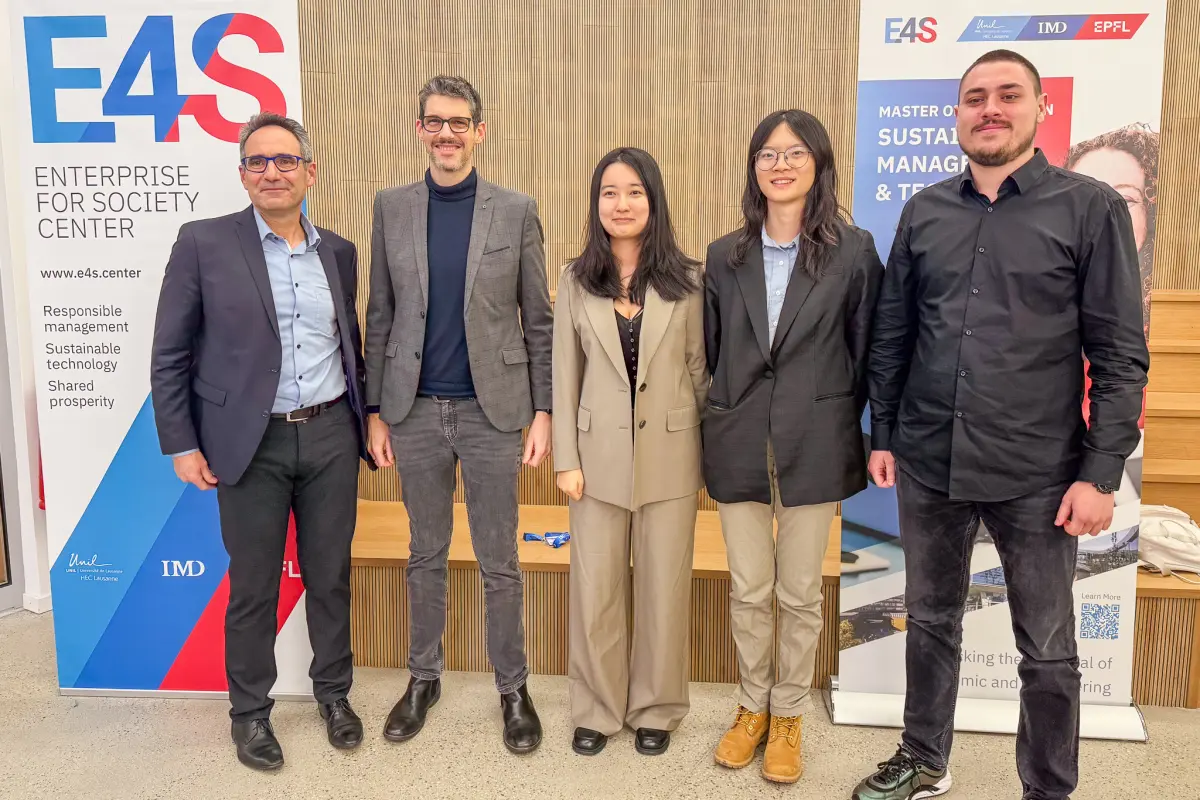
Sonceboz: The Sonceboz CO2 Reduction project for electric motors
As part of their Master's degree in Sustainable Management and Technology, students work on a sustainability challenge provided by a company to propose new perspectives or solutions that can have the potential to transform an industry or societal practice.
This project, in collaboration with Sonceboz SA, aimed to identify and address carbon footprint hotspots of key actuator components through lifecycle assessments (LCA). The team designed a roadmap outlining practical strategies to reduce emissions, including improving recycling processes, adopting renewable energy, and exploring alternative materials, thereby promoting a transition toward a more sustainable automotive industry.
Sonceboz – Carbon Footprint Reduction Project
The automotive industry, responsible for 10% of global CO₂ emissions, faces significant challenges in reducing its carbon footprint, despite ambitious goals like the EU’s 55% emission reduction by 2030 and the 2035 thermal vehicle ban. Issues such as EV battery disposal and slow adoption of EVs persist. Sonceboz SA, a Swiss leader in mechatronic systems, is committed to sustainability through energy-saving initiatives, waste recycling, and a target of carbon neutrality by 2039. A mechatronics system is composed of mechanical parts, electric devices, electronics components, sensors, hardware and software which controls and commands the system. An actuator is a type of mechatronic system responsible for initiating action or movement in another connected component. A single car can contain over 100 actuators, each serving different functions. Actuators play a critical role in contemporary automotive manufacturing, serving as essential components in vehicle functionality. Sonceboz has established itself as a leading producer of actuators, recognized for their innovation, reliability, high performance, and safety. The company’s technological expertise meets the demands of the industry, as evidenced by its collaboration with many globally renowned car manufacturers. However, the focus extends beyond technological capability to the environmental impact of these components. In this context, Sonceboz has conducted a comprehensive assessment of the carbon footprint associated with three key actuator components: printed circuit boards (PCBs), magnets, and laminated stacks.
This project aims to breakdown and reduce this carbon footprint, through life cycle assessments and actionable recommendations, aligning Sonceboz with global sustainability objectives. To enhance sustainability, Sonceboz could focus on improving recycling, adopting alternative materials, using renewable energy, and engaging stakeholders. Collaborating with suppliers can enhance the use of recycled materials, while partnerships with rare-earth metal recycling facilities can significantly mitigate environmental impact across downstream product use. Exploring biodegradable PCB alternatives and promoting renewable energy in manufacturing are also crucial steps, especially in supplier regions with fossil-fuel-dependent electricity. Stakeholder engagement is crucial for all recommendations to reduce emissions, driving a circular economy. The environmental benefits of recycling can in some cases reduce carbon emissions by over 80%. Decarbonizing energy grids and enhancing recycling infrastructure are essential for long-term sustainability in the automotive industry.
Students: Lazar Aleksic, Shiqi Yang and Yue Wu
Company’s Supervisors: Sébastien Royer, Pierre Blain, Olivier Pajot, and El Yafrahy Khalil from Sonceboz
Academic supervisor: Alexandre Pauli
Transformative Projects’ Lead: Samuel Wicki

